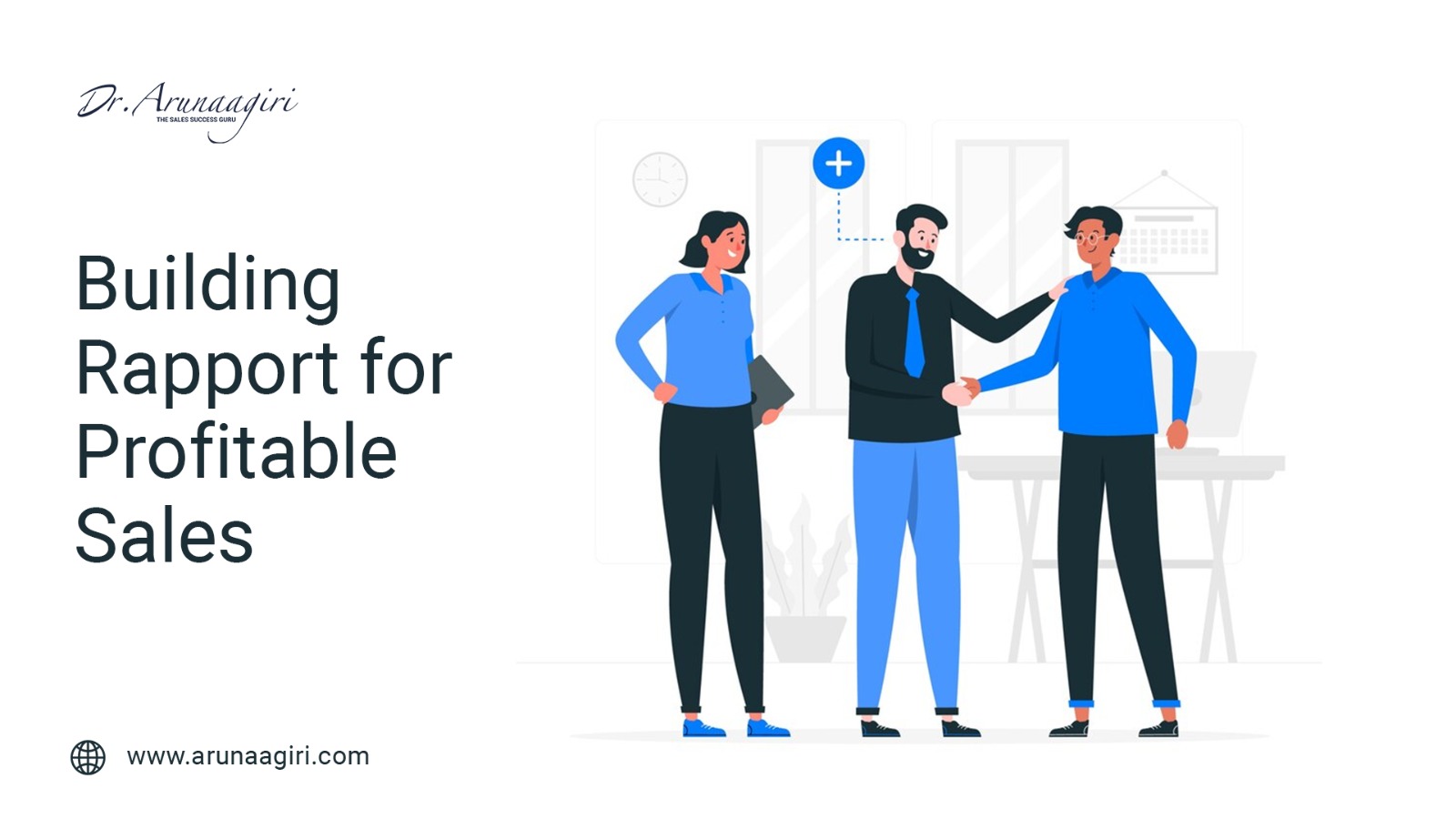Building rapport with customers is a fundamental skill in sales and customer service. It involves creating a positive and trusting relationship with your customers, which can lead to increased sales, customer loyalty, and overall business success.

Trust and Credibility
Building trust and credibility with customers is fundamental to successful sales. Rapport-building creates a sense of authenticity and reliability. When customers feel that you genuinely care about their needs and concerns, they are more likely to trust your recommendations and consider your product or service as a viable solution.
Customer Loyalty
Customer loyalty is an asset for any business. When you invest time in building rapport, you go beyond making a one-time sale. You cultivate a long-term relationship with the customer. Loyal customers not only make repeat purchases but also tend to spend more over their lifetime with your company, contributing significantly to profitability.
Higher Conversion Rates
Effective rapport-building techniques, such as active listening, empathy, and personalized communication, can substantially improve your conversion rates. Customers are more likely to make a purchase when they feel understood and appreciated. A positive rapport makes customers more comfortable with your sales process, increasing the likelihood of closing deals.
Upselling and Cross-selling
A strong rapport with customers creates opportunities for upselling and cross-selling. When customers trust your expertise and recommendations, they are more open to considering complementary products or higher-tier solutions. This not only boosts individual transaction values but also increases overall revenue.
Referrals and Word of Mouth
Customers who have built rapport with your team often become brand advocates. They are more likely to refer your business to others through word-of-mouth recommendations or online reviews. These referrals can result in new customers and revenue without the marketing costs associated with acquiring new leads.
Reduced Price Sensitivity
While price is a crucial factor in purchasing decisions, customers who have a strong rapport with your team may be less price-sensitive. They may be willing to pay a premium if they believe in the value, quality, and trustworthiness of your offerings, which can significantly contribute to profit margins.
Handling Objections and Concerns
Building rapport helps you effectively address objections and concerns. Customers who trust you are more likely to express their reservations openly. This provides an opportunity to address their specific concerns, offer tailored solutions, and ultimately guide them towards a successful sale.
Long-Term Success
Focusing on rapport-building as a core strategy ensures long-term success. By nurturing relationships over time, you can rely on a loyal customer base that continues to generate revenue. This reduces the need for costly and resource-intensive customer acquisition efforts, making your business more financially sustainable.
Better Understanding of Customer Needs
A strong rapport enables salespeople to gain a deeper understanding of customer needs and preferences. This insight allows you to customize your offerings and solutions to precisely match what the customer is looking for, further enhancing the chances of closing deals and increasing revenue.
Enhanced Communication
Building rapport often involves improving communication skills, such as active listening, empathy, and effective dialogue. These skills enable you to extract valuable information from customers, better understand their pain points, and offer solutions that genuinely address their unique requirements.
Building rapport with customers is not a short-term sales tactic but a strategic investment in long-term profitability. It is about creating meaningful, mutually beneficial relationships that lead to recurring revenue, increased customer lifetime value, and a reputation for trustworthiness in the competitive marketplace. Businesses that prioritize rapport-building stand to gain not only immediate sales but also sustained growth and profitability over time.

















Add comment